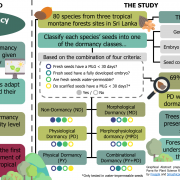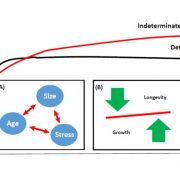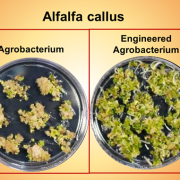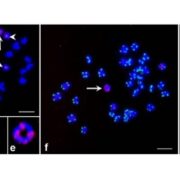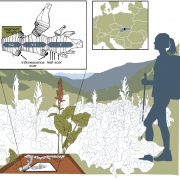Impact of genetically engineered maize on agronomic, environmental and toxicological traits (Sci. Rep.)
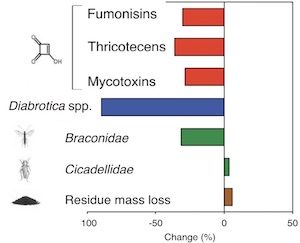 The question of the relative risks and benefits of genetically engineered (GE) maize is still in the middle of a heated debate, despite the widespread cultivation of GE crops (12% of the global crop-land) and long standing commercialization (since 1996). Pellegrino et al. report a meta-analysis of the existing data on the GE maize related agronomic, environmental and toxicological impacts reported in the scientific literature between the years 1996 and 2016. The authors conclude that their analysis illustrates that GE maize shows benefits in terms of increases in grain yield and quality, and in decreases of the trans-gene targetted insects when compared to conventional corn varieties. Their analysis points towards a small or possibly no effect of GE maize on the abundance of non-targeted insects, and provides evidence that GE corn cultivation reduces levels of harmful mycotoxin (−28.8%) content in resulting grain. (Summary by Isabel Mendoza) Scientific Report 10.1038/s41598-018-21284-2
The question of the relative risks and benefits of genetically engineered (GE) maize is still in the middle of a heated debate, despite the widespread cultivation of GE crops (12% of the global crop-land) and long standing commercialization (since 1996). Pellegrino et al. report a meta-analysis of the existing data on the GE maize related agronomic, environmental and toxicological impacts reported in the scientific literature between the years 1996 and 2016. The authors conclude that their analysis illustrates that GE maize shows benefits in terms of increases in grain yield and quality, and in decreases of the trans-gene targetted insects when compared to conventional corn varieties. Their analysis points towards a small or possibly no effect of GE maize on the abundance of non-targeted insects, and provides evidence that GE corn cultivation reduces levels of harmful mycotoxin (−28.8%) content in resulting grain. (Summary by Isabel Mendoza) Scientific Report 10.1038/s41598-018-21284-2


